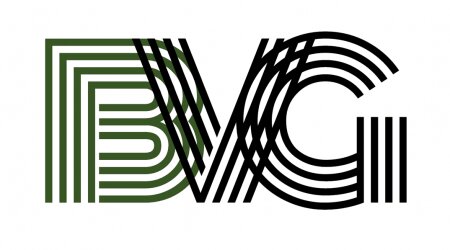Best General Litigation Lawyers in Šiauliai
Share your needs with us, get contacted by law firms.
Free. Takes 2 min.
List of the best lawyers in Šiauliai, Republic of Lithuania

About Litigation Law in Šiauliai, Republic of Lithuania
Litigation in Šiauliai, as in the rest of Lithuania, is the process of resolving legal disputes through the courts. Whether it involves civil, commercial, administrative, or criminal matters, litigation provides a formal means for individuals and businesses to assert their rights or defend against claims. Šiauliai is one of the largest cities in Lithuania and has its own regional court, making it a center for various types of court proceedings. The legal process in Lithuania follows the civil law tradition, with procedures governed primarily by written statutes and codes.
Why You May Need a Lawyer
Engaging a lawyer can be crucial in various litigation scenarios. Common situations where legal help is advised include:
- Disputes over property ownership or boundaries
- Breach of contract cases between individuals or companies
- Employment disputes, such as wrongful termination or unpaid wages
- Settling inheritance or succession issues
- Family matters, including divorce, child custody, and alimony
- Claims for damages after accidents or injuries
- Debt collection cases
- Appeals against administrative decisions by authorities
- Criminal accusations or charges
A lawyer's expertise can help navigate complex procedures, ensure deadlines are met, and provide advice tailored to local laws and practices.
Local Laws Overview
Litigation in Šiauliai is governed by Lithuanian national legislation, including the Code of Civil Procedure, Criminal Code, and Code of Administrative Offenses. The court system consists of district courts, regional courts, the Lithuanian Court of Appeal, and the Supreme Court. In Šiauliai, legal proceedings typically start at the Šiauliai District or Regional Court, depending on the case's type and value.
Key aspects to know:
- Written proceedings are standard, but hearings and oral arguments are also crucial
- Deadlines for filing claims and appeals are strictly enforced
- Pre-trial settlement or mediation may be encouraged in some disputes
- Court fees generally apply and must be paid when submitting claims
- Legal representation is not compulsory, but recommended for complex cases
- Enforcement of judgments is managed by bailiffs (antstoliai)
- Legal aid may be available for those who meet specific criteria
Frequently Asked Questions
What types of cases are usually handled through litigation in Šiauliai?
Litigation covers civil disputes, commercial disagreements, administrative challenges, family law matters, personal injury claims, and criminal cases.
Do I have to hire a lawyer to go to court in Šiauliai?
No, legal representation is not mandatory for most cases, but hiring a lawyer can significantly increase your chances of success and help you avoid costly mistakes.
What are the main courts in Šiauliai for litigation matters?
The Šiauliai District Court and the Šiauliai Regional Court are the main venues. Some cases may be escalated to the Lithuanian Court of Appeal or the Supreme Court.
How long does litigation typically take in Šiauliai?
Timeframes vary widely depending on the case's complexity, but many proceedings can last several months to more than a year. Appeals can further extend the duration.
What documents do I need to start a litigation process?
You will generally need a statement of claim, supporting evidence, identification, and proof of payment of court fees.
Can I get financial support for legal representation?
Yes, Lithuania offers legal aid to those who meet certain financial and case type criteria, both for civil and criminal matters.
Is mediation available as an alternative to litigation?
Yes, mediation is encouraged, especially in family and small civil disputes. Some courts may require attempting mediation before proceeding to trial.
What are the main costs involved in litigation?
Costs include court fees, lawyer’s fees, and sometimes expert or translation fees. Costs may be recovered from the losing party in some cases.
How are judgments enforced in Šiauliai?
Judgments are enforced by court bailiffs, who can take measures such as asset seizure, wage garnishment, or other appropriate enforcement actions.
How do I appeal a court decision?
You must file an appeal with the appropriate higher court within the legal time limit, generally within 30 days from the date of the decision.
Additional Resources
For further assistance and information regarding litigation in Šiauliai, you may refer to the following resources:
- Šiauliai District Court and Šiauliai Regional Court - for procedural information and case filing
- National Legal Aid Service under the Ministry of Justice of Lithuania - for legal aid and public defender requests
- Lithuanian Bar Association - for finding qualified attorneys in Šiauliai
- State-guaranteed legal aid centers - for free or subsidized legal help
- Ministry of Justice of the Republic of Lithuania - for general information on rights and court processes
Next Steps
If you require legal assistance with litigation in Šiauliai, consider the following steps:
- Gather all relevant documents and details about your dispute
- Consult with a qualified lawyer, preferably one experienced in litigation within Šiauliai
- Inquire if you are eligible for state-guaranteed legal aid
- Follow your lawyer’s advice regarding deadlines and required submissions
- Prepare for the possibility of alternative dispute resolution, such as mediation, if suggested
- Stay informed about the progress of your case and maintain regular communication with your legal representative
Taking timely and informed action can help protect your interests and improve the likelihood of a successful outcome in litigation proceedings.
Lawzana helps you find the best lawyers and law firms in Šiauliai through a curated and pre-screened list of qualified legal professionals. Our platform offers rankings and detailed profiles of attorneys and law firms, allowing you to compare based on practice areas, including General Litigation, experience, and client feedback.
Each profile includes a description of the firm's areas of practice, client reviews, team members and partners, year of establishment, spoken languages, office locations, contact information, social media presence, and any published articles or resources. Most firms on our platform speak English and are experienced in both local and international legal matters.
Get a quote from top-rated law firms in Šiauliai, Republic of Lithuania — quickly, securely, and without unnecessary hassle.
Disclaimer:
The information provided on this page is for general informational purposes only and does not constitute legal advice. While we strive to ensure the accuracy and relevance of the content, legal information may change over time, and interpretations of the law can vary. You should always consult with a qualified legal professional for advice specific to your situation.
We disclaim all liability for actions taken or not taken based on the content of this page. If you believe any information is incorrect or outdated, please contact us, and we will review and update it where appropriate.












